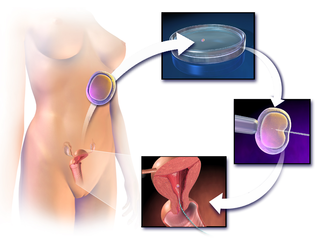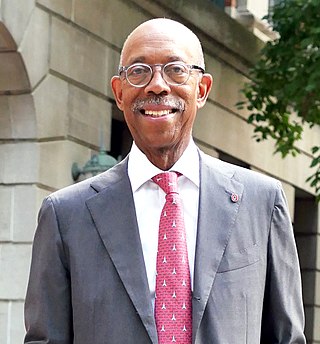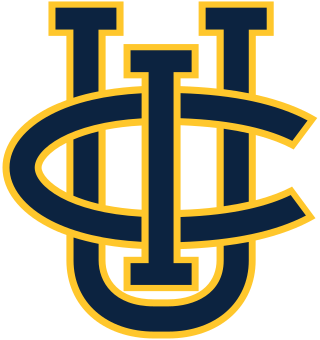Related Research Articles

In vitro fertilisation (IVF) is a process of fertilisation where an egg is combined with sperm in vitro. The process involves monitoring and stimulating a woman's ovulatory process, removing an ovum or ova from her ovaries and letting sperm fertilise them in a culture medium in a laboratory. After the fertilised egg (zygote) undergoes embryo culture for 2–6 days, it is transferred by catheter into the uterus, with the intention of establishing a successful pregnancy.
Gamete intrafallopian transfer (GIFT) is a tool of assisted reproductive technology against infertility. Eggs are removed from a woman's ovaries, and placed in one of the fallopian tubes, along with the man's sperm. The technique, first attempted by Steptoe and Edwards and later pioneered by endocrinologist Ricardo Asch, allows fertilization to take place inside the woman's uterus.

Andrzej Viktor "Andrew" Schally is an American endocrinologist of Polish ancestry, who was a corecipient, with Roger Guillemin and Rosalyn Sussman Yalow, of the Nobel Prize in Physiology or Medicine. This award recognized his research in the discovery that the hypothalamus controls hormone production and release by the pituitary gland, which controls the regulation of other hormones in the body. Later in life, Schally utilized his knowledge of hypothalamic hormones to research possible methods for birth control and cancer treatment.

The Human Fertilisation and Embryology Authority (HFEA) is an executive non-departmental public body of the Department of Health and Social Care in the United Kingdom. It is a statutory body that regulates and inspects all clinics in the United Kingdom providing in vitro fertilisation (IVF), artificial insemination and the storage of human eggs, sperm or embryos. It also regulates human embryo research.

Assisted reproductive technology (ART) includes medical procedures used primarily to address infertility. This subject involves procedures such as in vitro fertilization (IVF), intracytoplasmic sperm injection (ICSI), cryopreservation of gametes or embryos, and/or the use of fertility medication. When used to address infertility, ART may also be referred to as fertility treatment. ART mainly belongs to the field of reproductive endocrinology and infertility. Some forms of ART may be used with regard to fertile couples for genetic purpose. ART may also be used in surrogacy arrangements, although not all surrogacy arrangements involve ART. The existence of sterility will not always require ART to be the first option to consider, as there are occasions when its cause is a mild disorder that can be solved with more conventional treatments or with behaviors based on promoting health and reproductive habits.
Egg donation is the process by which a woman donates eggs to enable another woman to conceive as part of an assisted reproduction treatment or for biomedical research. For assisted reproduction purposes, egg donation typically involves in vitro fertilization technology, with the eggs being fertilized in the laboratory; more rarely, unfertilized eggs may be frozen and stored for later use. Egg donation is a third-party reproduction as part of assisted reproductive technology.

Erwin Chemerinsky is an American legal scholar known for his studies of constitutional law and federal civil procedure. Since 2017, Chemerinsky has been the dean of the UC Berkeley School of Law. Previously, he also served as the inaugural dean of the University of California, Irvine School of Law from 2008 to 2017.

The University of California, Irvine Medical Center is a major research hospital located in Orange, California. It is the teaching hospital for the University of California, Irvine School of Medicine.

Michael Vincent Drake is an American university administrator and physician who is the 21st president of the University of California. From 2014 to June 2020, he was the 15th president of Ohio State University. From 2005 to 2014, he was the chancellor of the University of California, Irvine and prior to that served as vice president for health affairs for the University of California system.

The Human Fertilisation and Embryology Act 1990 is an Act of the Parliament of the United Kingdom. It created the Human Fertilisation and Embryology Authority which is in charge of human embryo research, along with monitoring and licensing fertility clinics in the United Kingdom.

Oocyte cryopreservation is a procedure to preserve a woman's eggs (oocytes). This technique has been used to enable women to postpone pregnancy to a later date – whether for medical or social reasons. Several studies have shown that most infertility problems are due to germ cell deterioration related to aging. The intention of the procedure is that the woman may choose to have the eggs thawed, fertilized, and transferred to the uterus as embryos to facilitate a pregnancy in the future. The procedure's success rate varies depending on the age of the woman, with odds being higher in younger, adult women.
Donor registration facilitates donor conceived people, sperm donors and egg donors to establish contact with genetic kindred. Registries are mostly used by donor conceived people to find out their genetic heritage and to find half-siblings from the same egg or sperm donor. In some jurisdictions donor registration is compulsory, while in others it is voluntary; but most jurisdictions do not have any registration system.
Religious response to assisted reproductive technology deals with the new challenges for traditional social and religious communities raised by modern assisted reproductive technology. Because many religious communities have strong opinions and religious legislation regarding marriage, sex and reproduction, modern fertility technology has forced religions to respond.

The UC Irvine Anteaters men's volleyball team is the men's intercollegiate volleyball team at the University of California, Irvine. UC Irvine was a founding member of the Mountain Pacific Sports Federation in the 1992–93 season. Beginning with the 2017–18 season, UCI moved to the Big West Conference's inaugural men's volleyball league. Irvine has won the NCAA Men's National Collegiate Volleyball Championship four times, and appeared in the tournament an additional three.

The Flying Samaritans is a non-profit organization dedicated to providing free health care for underserved populations in Baja California, Mexico. The organization consists of ten different chapters, each with up to eight branches, that all operate a medical clinic in Baja California. Volunteer students, doctors, nurses, pilots, and other health professionals travel with their Flying Samaritans branch to their respective clinic locations and run anywhere from one-day to weekend long clinics on a monthly basis. Now with more than 1500 members the Flying Samaritans mission has spread broadly across California, Arizona, and Baja California.
John Jin Zhang is a medical scientist who has made contributions in fertility research, and particularly in in vitro fertilization. He made headlines in September 2016 for successfully producing the world's first three-parent baby using the spindle transfer technique of mitochondrial replacement. Having obtained an M.D. from Zhejiang University School of Medicine, an M.Sc. from University of Birmingham, and a Ph.D. from University of Cambridge, he became the founder-director of New Hope Fertility Center in New York, USA.
The 1986–87 UC Irvine Anteaters men's basketball team represented the University of California, Irvine during the 1986–87 NCAA Division I men's basketball season. The Anteaters were led by sixth year head coach Bill Mulligan. UCI played their first three home games at Crawford Hall until the new Bren Events Center was opened on January 8. They were members of the Pacific Coast Athletic Association. They finished the season 14–14 and 9–9 in PCAA play.
Lux Balmaceda Pascal is an American-born Chilean actress and transgender activist.

Fertility fraud is the failure on the part of a fertility doctor to obtain consent from a patient before inseminating her with his own sperm. This normally occurs in the context of people using assisted reproductive technology (ART) to address fertility issues.
Donald Lee Cline is a former American medical doctor of obstetrics and gynaecology and a felon. Between 1974 and 1987, Cline sired over 90 children without disclosing himself as the sperm donor to his patients. As of May 11, 2022, Cline has been confirmed as the biological father of 94 doctor-conceived offspring.
References
- 1 2 3 4 5 Dodge, Mary; Geis, Gilbert (2003). Stealing Dreams: A Fertility Clinic Scandal. Lebanon, New Hampshire: Northeastern University Press. p. 113. ISBN 1-55553-585-2.
- 1 2 Asch, RH; Smith, CG (1986). "Effects of delta 9-THC, the principal psychoactive component of marijuana, during pregnancy in the rhesus monkey". The Journal of Reproductive Medicine. 31 (12): 1071–81. ISSN 0024-7758. PMID 3025441.
- 1 2 BALMACEDA, J.P.; BORGHI, M.R.; COY, D.H.; SCHALLY, A.V.; ASCH, R.H. (1983). "Suppression of Postovulatory Gonadotropin Levels Does Not Affect Corpus Luteum Function in Rhesus Monkeys". The Journal of Clinical Endocrinology & Metabolism. The Endocrine Society. 57 (4): 866–868. doi: 10.1210/jcem-57-4-866 . ISSN 0021-972X. PMID 6411757.
- 1 2 Asch RH, Ellsworth LR, Balmaceda JP, Wong PC (1984). "Pregnancy after translaparoscopic gamete intrafallopian transfer". Lancet. 2 (8410): 1034–5. doi:10.1016/s0140-6736(84)91127-9. PMID 6149412. S2CID 33844752.
- ↑ "UC Fertility Case Doctor Sells Home". LA Times. 24 October 1995. Retrieved 2021-06-02.
- ↑ "Ex-Chief of Scandal-Plagued Fertility Clinic Accused of Insurance Fraud". Associated Press. Retrieved 2021-06-02.
- ↑ "Niegan extraditar a doctor acusado en EU". Grupo Reforma (in Spanish).
- ↑ "Doctor with ties to fertility scandal won't be extradited by Mexico". LA Times. April 2011. Retrieved 2020-07-03.
- ↑ "Fertility Doctor on the Run Arrested in Mexico". ABC News. Retrieved 2020-01-21.
- ↑ "Abstracts for 2017 Foundation for Reproductive Medicine Translational Reproductive Biology and Clinical Reproductive Endocrinology Conference". J Assist Reprod Genet. 34 (10): 1385–1402. 2017. doi:10.1007/s10815-017-1055-7. PMC 5633566 . PMID 28971380.
- 1 2 Hilary Gilson. "Ricardo Hector Asch (1947- )". The Embryo Project Encyclopedia. Retrieved June 20, 2015.
- ↑ Lindgren, Kris (1991-05-13). "IRVINE : UCI Medical School Seeks Minorities". Los Angeles Times. Retrieved 2021-07-09.
- ↑ Yoshino, Kimi (2009-09-11). "UCI settles dozens of fertility suits". Los Angeles Times. ISSN 0458-3035 . Retrieved 2018-01-10.
- ↑ MARQUIS, JULIE; WEBER, TRACY; WAGNER, MICHAEL G. (1995-07-06). "Egg Misuse May Have Involved 30 More Patients, UCI Reports : Scandal: The scope of the fertility clinic's alleged improprieties is widened dramatically, touching a third hospital and including patients treated as long ago as 1988". Los Angeles Times. ISSN 0458-3035 . Retrieved 2018-01-10.
- 1 2 3 4 5 Teri Sforza (January 25, 2011). "Should UC go after fertility fraud doctor's assets?". Orange County Register. Retrieved June 20, 2015.
- ↑ Anderson, Nick; Schrader, Esther (July 19, 1997). "50 Couples to Get $10 million to end UCI Fertility Clinic Suits". Los Angeles Times . Retrieved March 15, 2009.
- ↑ Sforza, Teri (2011-03-23). "UCI fertility fraud doctor set free in Mexico". The Orange County Register. Retrieved 2021-08-21.
- ↑ "UCI Medical Students Defend Asch's Character". LA Times\. June 14, 1995. Retrieved August 8, 2021.
- ↑ Susan Kellerher; Kim Christensen (May 19, 1995). "Baby Born After Doctor Took Eggs Without Consent". The Pulitzer Prizes . Retrieved June 22, 2015.
- ↑ Yoshino, Kimi (2006-01-20). "UC Irvine Fertility Scandal Isn't Over". Los Angeles Times. ISSN 0458-3035 . Retrieved 2021-07-08.
- ↑ "UC Fertility Case Doctor Sells Home" Los Angeles Times 24 October 1995. Accessed 23 October 2009
- ↑ Julie Marquis (January 20, 1996). "Fertility Doctor Denies Role in Errors". LA Times. Retrieved June 21, 2015.
- ↑ "University Fires Professor In Embryo-swapping Scandal". Utusan online. Associated Press. July 22, 2000. Retrieved June 22, 2015.
- ↑ "Should UC go after fertility fraud doctor's assets?". Orange County Register. 2011-01-25. Retrieved 2018-01-10.</ref "Niegan extraditar a doctor acusado en EU". Grupo Reforma (in Spanish).
- ↑ "Fugitive in UC Irvine fertility scandal arrested in Mexico City; U.S. hopes to extradite him". LA Times Blogs - L.A. NOW. 2010-12-27. Retrieved 2018-01-10.
- ↑ - in Spanish - Accessed 30 December 2010
- ↑ "Doctor Accused In UCI Fertility Scandal Released From Mexican Jail". CBS Los Angeles. Associated Press. March 23, 2011. Retrieved June 20, 2015.
- ↑ Kim Christensen (April 1, 2011). "Doctor with ties to fertility scandal won't be extradited by Mexico". LA Times. Retrieved June 21, 2015.
- ↑ Asch RH, Gutiérrez Najar A, Tabsh K, Magee T and Rasheed S.J. (1999). "Primero nascimento de um garoto saudavel apos semen screening, ICSI e transferencia de embria o emum casal HIV-serodiscordante". JJ BrasileiroReprod. Assist. 3 (3): 36.
{{cite journal}}: CS1 maint: multiple names: authors list (link) - ↑ "Scopus preview - Asch, Ricardo Hector - Author details - Scopus". SCOPUS. Jan 1, 2022. Retrieved Jan 5, 2022.
- ↑ "Citation Thresholds (Essential Science Indicators)". Science Watch. Thomson Reuters. May 1, 2010. Archived from the original on 5 May 2010. Retrieved 5 Jan 2022.
- ↑ "Ricardo Asch - IMDB". IMDB. 2020-09-01. Retrieved 2020-09-01.